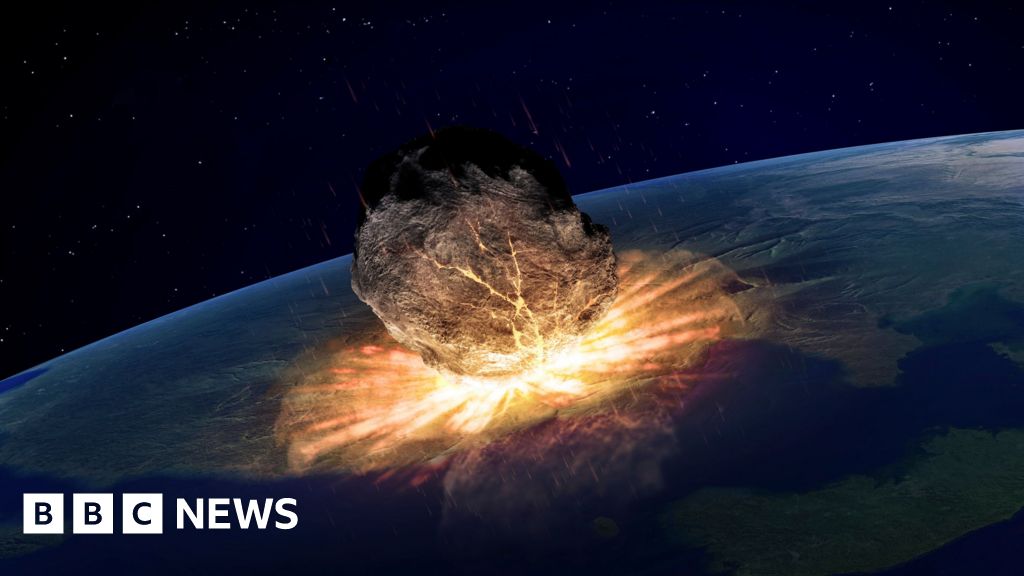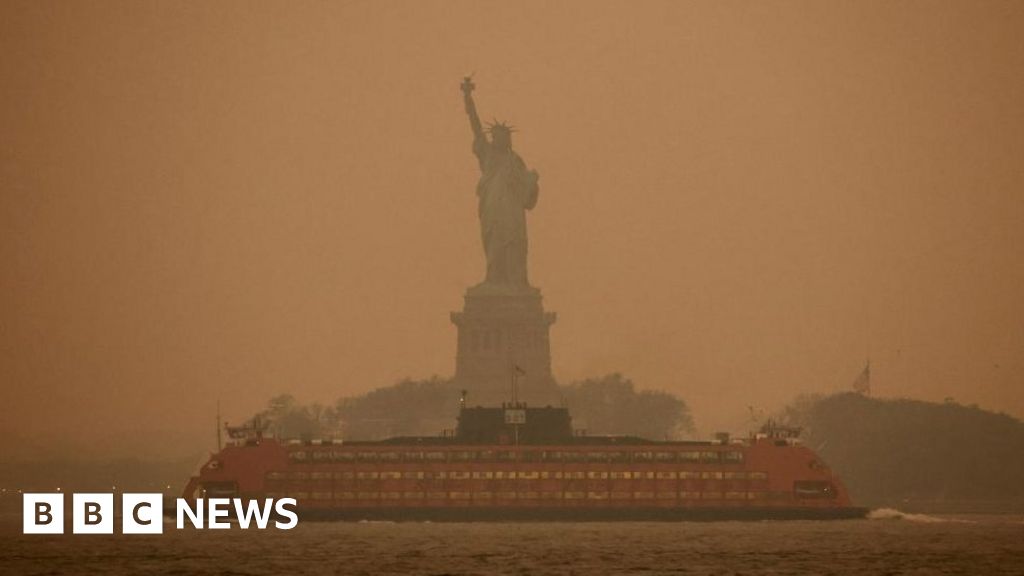- By Nadine Yousif
- BBC News, Toronto
Air quality in Toronto was deemed “high risk” on Tuesday.
High-risk air quality warnings have been issued for millions of people across North America due to ongoing wildfires in Canada.
Wildfire smoke has blanketed major cities in Ontario and Quebec, including Toronto and its surrounding areas.
Smoke has spread as far as New York City and Connecticut, where air quality has been classified as “unhealthy.”
More smoke is coming from Quebec, where 160 fires are burning.
Environment Canada issued its strongest warning for Ottawa on Tuesday, deeming air quality in the Canadian capital a “very high risk” to public health.
In and around Toronto, air quality is classified as “high risk”.
Meanwhile, the U.S. Environmental Protection Agency (EPA) has classified air quality in much of the northeastern United States as “unhealthy,” especially for people who already have breathing problems.
Air quality advisories include New York City and Connecticut. They stretch as far north as Boston and as far south as Pittsburgh and Washington DC.
Eastern Pennsylvania, New York and parts of New England ranked in the top 200 on the air quality index, meaning “very unhealthy for all” conditions.
In New York, photos taken Tuesday morning showed an orange haze blanketing the city’s skies as wildfire smoke traveled south from Canada.
Public health officials have warned against exercising outdoors and minimizing exposure to smoke as much as possible, as the air poses immediate and long-term health risks.
Worsening air quality has forced at least one area in Quebec — the Adikamekwe community of Opitsiwan, 350 km (217 miles) north of Montreal — to move people with asthma and other respiratory problems away from the smoke.
Canada continues to have a more active than normal wildfire season. Canada’s biggest wildfires this summer are likely due to dry and hot conditions forecast for much of the season, federal officials warned Monday.
Fires across the country have already burned 3.3 million hectares – 12 times more than this year’s 10-year average.
Thousands of people have been evacuated across the country, including Quebec, where the fire has burned about 200,000 hectares to date.
Large fires are also burning in British Columbia, Alberta, Ontario, Nova Scotia and the Northwest Territories.
image source, NASA Earth Observatory/ISS Crew Earth Observations
As of Tuesday, 160 forest fires were burning across Quebec
How does wildfire smoke affect your health?
Experts say exposure to wildfire smoke can cause health problems.
Immediate effects of inhaling wildfire smoke include shortness of breath, increased pulse rate, chest pain or swelling of the eyes, nose and throat, said Matthew Adams, a professor at the University of Toronto and director of the Center for the Urban Environment.
“On these high air pollution days, we will see higher numbers of visits to hospitals,” Professor Adams told the BBC. “And people who go to the hospital usually have pre-existing respiratory disease.”
But wildfire smoke has been linked to serious, long-term health problems, such as cancer or lung disease, especially for people living in areas that experience frequent wildfires, Professor Adams said.
It is caused by tiny particles in smog that can enter the bloodstream and other parts of the human body, potentially causing DNA mutations and other health problems.
Some studies show that long-term exposure to wildfire smoke can affect pregnant women and their unborn babies, Professor Adams added.
Professor Adams advised people living in cities far from the fire but under current air advisories to limit outdoor exercise to avoid inhaling wildfire smoke.
“Don’t worry about it,” he said. “Stay indoors and minimize your exposure.”
But in areas close to fires, Professor Adams recommended wearing an N95 mask outside to prevent inhalation of most smoke particles.
He also advised installing HEPA filters and better ventilation indoors to reduce exposure.







